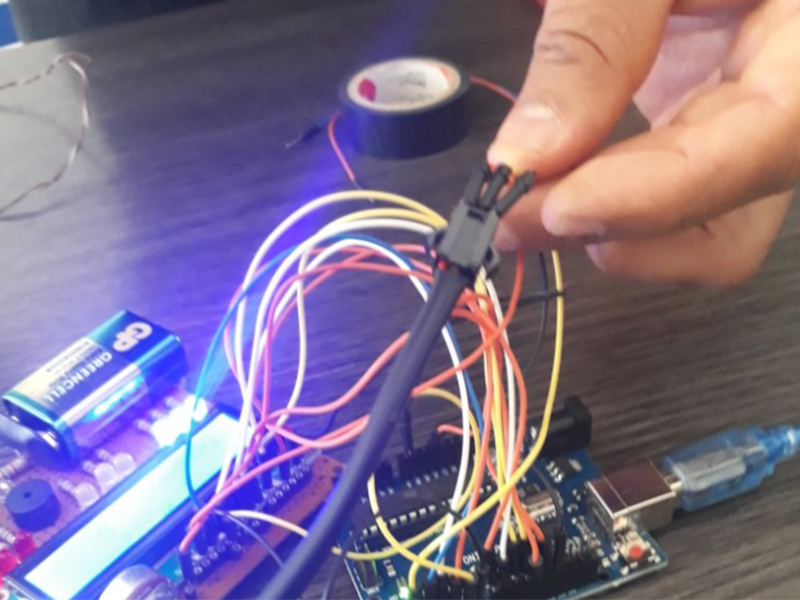Wali, the smart meter

Four Yachay Tech students are seeking to deal with the problem of water scarcity.
In 2015, the World Economic Forum labeled water scarcity as the main risk worldwide. At least one third of the population lives under conditions of severe water scarcity, at least one month out of the year. Cape Town is the most recent example of this problem and its solution. The South African city was about to reach its Day Zero (the day when water levels would be so low that it would be necessary to shut off water supplies in the city) in April, 2018. However, after different water rationing measures, Day Zero has been pushed back to 2019. Although there are several factors that contribute to this problem, it is possible to find a solution from different edges.
With this in mind, four students of Yachay Tech University designed Wali, a smart water meter. Wali consists of a device that measures the amount of potable water that a household consumes and displays it in an easy-to-read form so that users can calculate if their consumption is excessive. The information is gathered in a memory that determines if the consumption has exceeded the limits set and then it lets the user know by showing it in the form of a traffic light. It also includes a system that detects water leaks. The user is notified of this through the traffic light and a LED screen that shows other important consumption data.
Once the device becomes a reality, the information gathered is then sent to a web server that will give water management companies quick access to the consumption levels of each household. This will try to optimize the task that these companies have of checking water meters every month. The idea is to encourage a monthly saving of water, specifically per person, based on water consumption levels of each sector and taking into account basic water needs for households.
Jennifer Anaís Sánchez, a Physics major from sixth semester; Johana Maribel Telenchana, Math major, and Camila Lissett Velastegui, Biology major, both also from sixth semester; and Darwin Patricio Ortiz, a Petrochemical major from fifth semester, are the creators of Wali. The project was already presented at the Bank of Ideas of SENESCYT hoping to get funding for the first prototype. The group thinks that the solution to water scarcity relies on prevention. This way, no other city will have to endure what Cape Town endured. (MCB/MFF)